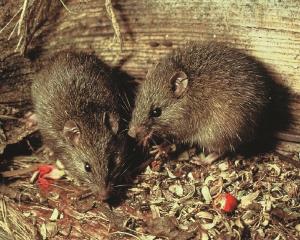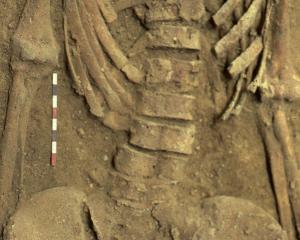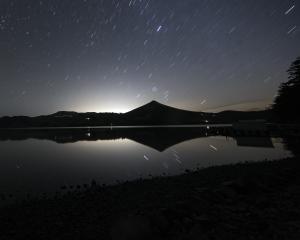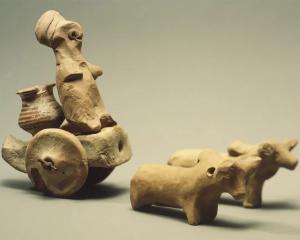The commercial harvesting of seaweed has been condemned by a Dunedin marine scientist.
University of Otago Department of Marine Science scientist and East Otago taiapure management committee member Dr Chris Hepburn says the practice, which was revealed in the Otago Daily Times last week, had serious implications for the local tourism and fisheries industries.
Dunedin City councillor Colin Weatherall brought the harvesting to light after two beachfront areas at Brighton were damaged by a 10-tonne truck and front-end loader owned by harvester Simon Stott.
When contacted, Dunedin Ministry of Fisheries officer John Kennedy said Mr Stott was permitted to harvest bladder kelp at Brighton.
"It's a new species under our quota system.
"At this stage, we believe he's fishing legally."
However, Dr Hepburn, who was recently involved in the drafting of the quota system in his role as scientific adviser for the East Otago taiapure management committee, said it was "destructive".
"You used to be able to fish on a permit, but not any more.
"This has just come under the new quota system," he said yesterday.
"This is wrong in so many ways.
"We have just been through a lengthy consultation with MFish in developing harvesting guidelines for macrocystis and I didn't see `front-end loader' mentioned once."
"I was surprised to hear that MFish thought the harvester was legally harvesting macrocystis.
"This seems impossible, as macrocystis is very rare at Brighton and surrounds, although a few individuals are found in rock pools.
"There is no macrocystis, or bladder kelp, on Brighton beach to my knowledge.
"The only place you find bladder kelp in any quantity is Karitane, which is 50km away."
Dr Hepburn, who completed his PhD on bladder kelp in Otago Harbour, was surprised a caterpillar-tracked front-end loader was being used.
"You can't do it with a front-end loader; I know that for sure.
"Specialised floating barges are the classic mode of harvest.
""It all seems a bit weird to me.
"It seems strange that MFish would seem to be happy with a harvesting method that is so destructive.
"The value of kelp as fertiliser is about $1 a kilo. It's using a high value product as a low value product.
"Even if it was legal, it's terrible practice. It's a big deal for Dunedin, because there's a lot of money in tourism and fisheries.
"That kelp is what the fish live on.
"It just seems a real waste," Dr Hepburn said.
Otago Regional Council environmental services manager Martin King confirmed the damaged beachfront incident was under investigation.
Advertisement












